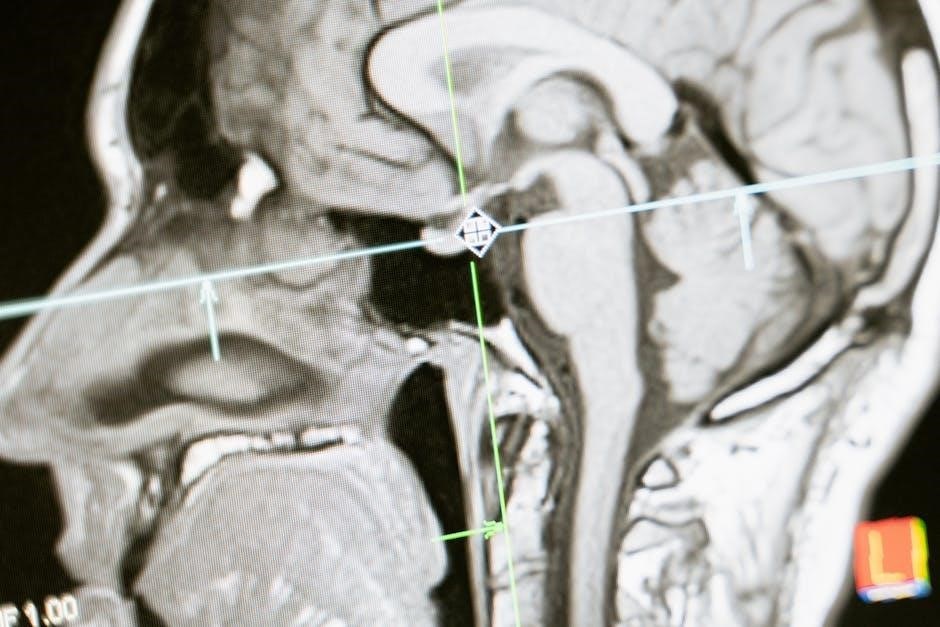Welcome to Year 8 Maths tests, designed to assess your understanding of key mathematical concepts and problem-solving skills. These tests help identify strengths and areas for improvement, ensuring you’re well-prepared for future challenges.

Understanding the Format and Importance
Year 8 Maths tests are structured to evaluate students’ grasp of mathematical concepts and their ability to apply them in problem-solving scenarios. The format typically includes multiple-choice questions, short-answer problems, and extended-response tasks. These assessments are crucial as they help identify gaps in knowledge, ensuring students are adequately prepared for higher-level maths. Regular testing also builds exam readiness and time management skills. By practising with past papers, students can familiarise themselves with the test layout and question types. Understanding the format and importance of these tests enables students to approach them with confidence, knowing they are key to measuring progress and readiness for future challenges.
- Tests include multiple-choice, short-answer, and extended-response questions.
- Assessments help identify knowledge gaps and track progress.
- Practising with past papers improves exam readiness and time management.
Regular testing builds confidence and ensures students are well-prepared for higher-level maths.
Key Skills Assessed in Year 8 Maths Tests
Year 8 Maths tests evaluate a range of essential skills, including problem-solving, critical thinking, and the ability to apply mathematical concepts to real-world scenarios. Students are assessed on their understanding of algebra, geometry, and data analysis, as well as their ability to interpret graphs and statistical information. These tests also focus on foundational arithmetic skills, such as manipulating numbers and solving equations accurately. Logical reasoning and spatial awareness are key components, ensuring students can visualize and calculate geometric shapes and volumes. Additionally, tests measure the ability to communicate mathematical ideas clearly and apply concepts to practical problems. These skills are vital for building a strong mathematical foundation and preparing students for higher-level studies.
- Problem-solving and critical thinking.
- Algebraic manipulation and equation-solving.
- Geometric reasoning and spatial awareness.
- Data interpretation and statistical understanding.
- Application of concepts to real-world scenarios.

These skills are essential for academic success and real-world problem-solving.

Key Topics Covered in Year 8 Maths Tests
Year 8 Maths tests cover number sense, algebra, geometry, and data analysis. Students are assessed on their ability to solve problems involving fractions, ratios, and basic trigonometry. Additionally, tests include questions on graph interpretation, probability, and spatial reasoning, ensuring a well-rounded understanding of mathematical concepts and their practical applications.
- Number operations and fractions.
- Algebraic expressions and equations.
- Geometry and spatial reasoning.
- Data analysis and graph interpretation.
Mastering these topics is crucial for academic progression and real-world problem-solving.
Number Sense and Basic Arithmetic
In Year 8 Maths tests, number sense and basic arithmetic are fundamental. Students are assessed on their ability to perform operations with integers, decimals, and fractions. Questions often involve simplifying expressions, calculating percentages, and solving problems involving ratios and proportions. Mental math strategies and estimation skills are also evaluated to ensure a strong foundation in numerical reasoning.
- Operations with integers and decimals.
- Fractional concepts, including simplification and conversion.
- Percentage calculations and their real-world applications.
- Ratios and proportions in problem-solving scenarios.
Mastering these skills is essential for tackling more complex mathematical concepts in later years. Regular practice with past papers and numbered exercises can significantly improve a student’s fluency and accuracy.
Algebra and Equations
In Year 8 Maths tests, algebra and equations are a core focus. Students are expected to solve linear equations, manipulate algebraic expressions, and apply formulas to real-world problems. Questions often involve simplifying expressions, solving for variables, and interpreting graphs of linear relationships. Word problems requiring algebraic reasoning are also common, testing the ability to translate verbal descriptions into mathematical equations.
Key topics include:
- Solving equations with integers and fractions.
- Graphing linear equations and identifying slopes.
- Setting up and solving equations from word problems.
- Understanding inverse operations and balancing equations.
Mastering these skills builds a foundation for advanced algebra in higher grades. Regular practice with past papers and algebraic worksheets is recommended to improve problem-solving speed and accuracy.
Geometry and Spatial Awareness
Geometry and spatial awareness are critical components of Year 8 Maths tests, focusing on understanding shapes, their properties, and relationships in space. Students are assessed on their ability to calculate perimeter, area, and volume, as well as identify and apply properties of triangles, quadrilaterals, and 3D objects.
Key topics include:
- Identifying angles, such as acute, obtuse, and right angles.
- Calculating perimeter and area of various shapes, including irregular polygons.
- Understanding properties of triangles, rectangles, and prisms.
- Interpreting and creating diagrams to solve spatial problems.
Practising with diagrams and past papers helps improve visualisation and accuracy in geometry. These skills are essential for higher-level maths and real-world applications.
Data Analysis and Graphs
Data analysis and graphs are essential components of Year 8 Maths tests, focusing on the interpretation and presentation of information. Students are expected to read and analyse various types of graphs, including bar graphs, line graphs, and pie charts, to extract and compare data.
Key skills assessed include:
- Identifying trends and patterns in datasets.
- Calculating statistical measures such as mean, median, mode, and range.
- Drawing conclusions based on graphical representations.
- Constructing and interpreting tables and charts.
Practising with real-world examples and past papers helps improve data interpretation and presentation skills, which are crucial for understanding and applying mathematical concepts effectively.
Preparation Strategies for Year 8 Maths Tests
Effective preparation involves using past papers, practising regularly, and employing study techniques like active learning and time management to build confidence and improve problem-solving skills.
Using Past Papers and Practice Tests
Utilizing past papers and practice tests is a proven method to excel in Year 8 Maths. These resources provide insights into test formats, question types, and time management. By solving past papers, students can identify common themes and challenging areas, enabling focused study. Regular practice builds familiarity with exam conditions, reducing anxiety and enhancing problem-solving speed. Additionally, reviewing mistakes in practice tests helps students understand their errors and improve accuracy. Parents and teachers can use released tests to guide students, ensuring comprehensive preparation. Consistent practice with diverse question sets strengthens mathematical fluency and boosts confidence, making past papers an invaluable tool for success in Year 8 Maths assessments.
Effective Study Techniques and Time Management
Mastering effective study techniques and time management is crucial for success in Year 8 Maths tests. Start by breaking study sessions into manageable chunks, focusing on one topic at a time; Use active recall by testing yourself on key concepts without notes. Spaced repetition helps reinforce memory over time. Prioritize challenging areas and allocate extra time to practice them. Create a study schedule and stick to it, ensuring consistent progress. During tests, allocate time wisely to each question, avoiding overthinking. Use mental math tricks and estimation to save time where possible. Minimize distractions by studying in a quiet environment. Finally, take regular breaks to maintain focus and prevent burnout. Combining these strategies ensures efficient learning and optimal performance in exams.

Final Tips for Test Day
- Arrive early and stay calm to avoid last-minute stress.
- Read instructions carefully and manage your time wisely.
- Attempt all questions, starting with those you find easiest.
- Review your work to catch and correct mistakes.
How to Stay Calm and Focused
To stay calm and focused during your Year 8 Maths test, start by arriving early to avoid last-minute stress. Take deep breaths to relax and clear your mind. Positive affirmations can boost confidence, while visualization techniques help maintain focus. Skim through the test paper first to identify easier questions, tackling them initially to build momentum. Avoid distractions by keeping your eyes on your work and managing your time effectively. Remember, staying hydrated and energized with a healthy snack beforehand can improve concentration. Most importantly, believe in your preparation and approach each question methodically. These strategies will help you stay composed and perform at your best.
Reviewing and Learning from Mistakes
Reviewing your Year 8 Maths test results is crucial for identifying areas needing improvement. Start by carefully analyzing each incorrect answer to understand where you went wrong. Use past papers and practice tests to retry challenging questions, ensuring you grasp the concepts. Break down complex problems into simpler steps to avoid confusion. Keep a log of common mistakes and revisit them regularly to reinforce learning. Watching video tutorials or consulting textbooks can clarify misunderstandings. Time management during tests is also key—allocate enough time for each section to avoid rushed decisions. Finally, seek feedback from teachers or peers to gain new insights and refine your problem-solving strategies. Learning from mistakes transforms them into valuable lessons for future success.
